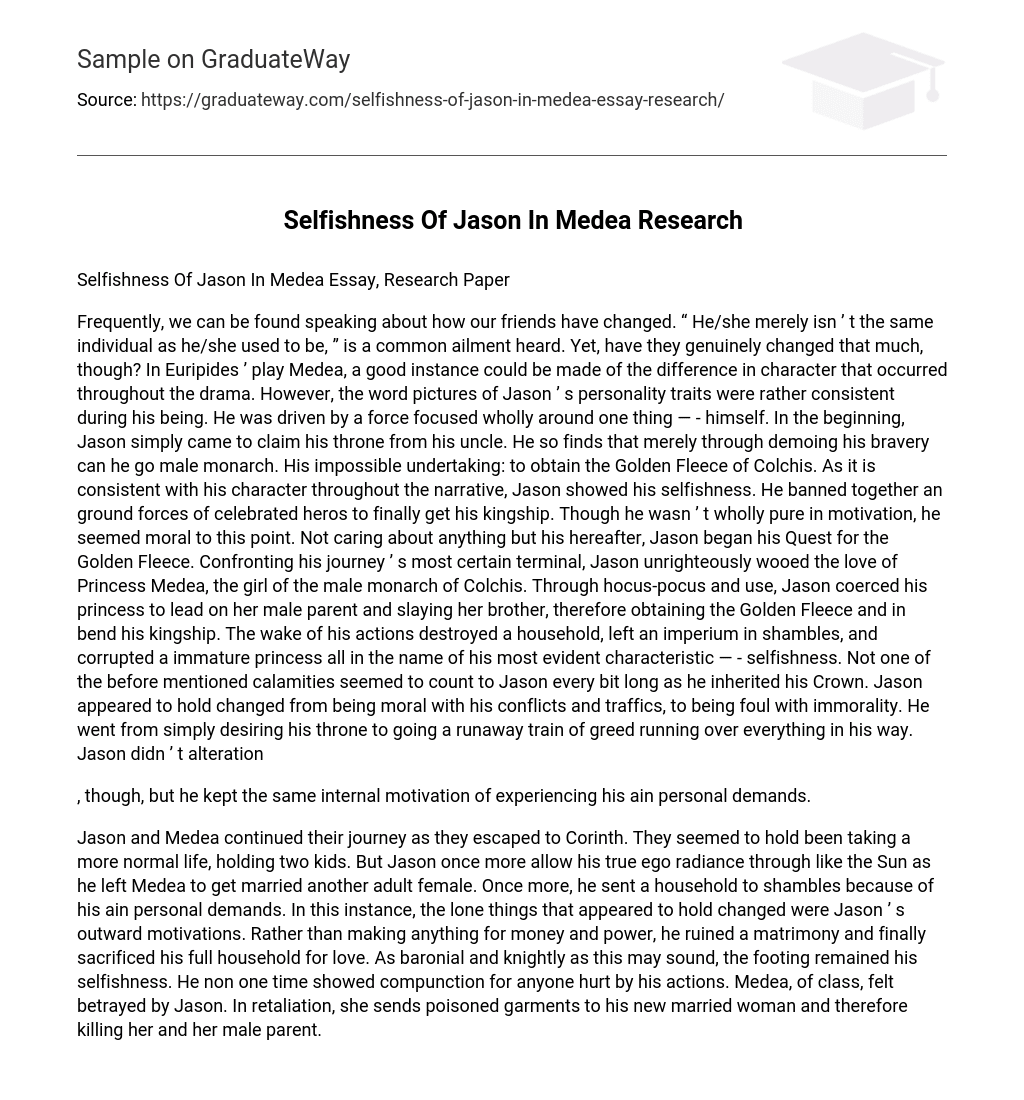Selfishness of Jason in Medea
Essay, Research Paper
The common complaint of how our friends have changed is often discussed, questioning if they truly have transformed. Euripides’ play Medea provides a clear example of character differences that developed throughout the drama. However, Jason’s personality traits remained consistent throughout the story. He prioritized self-interest above all else, initially coming to claim his throne but realizing he needed to show bravery to become king. Demonstrating his characteristic selfishness, he gathered famous heroes to assist him in achieving his goal and claiming kingship. Though his motivations may not have been entirely pure, he appeared moral until this point as he focused solely on his future pursuit for the Golden Fleece. As Jason neared the end of his journey, he deceitfully seduced Princess Medea through manipulation and trickery. He convinced her to betray her father and kill her brother in order to obtain the Golden Fleece and secure his kingship. Despite causing destruction within a household, collapsing an empire, and corrupting a young princess due to his selfishness, Jason remained unchanged. The consequences of his actions no longer seemed to concern him; inheriting the Crown was all that mattered.Jason’s previous moral convictions and sense of justice appeared to have vanished, as they were now replaced by an insatiable greed that drove him to disregard everything in his way.
Despite this, he remained determined to satisfy his personal desires.
Jason and Medea went to Corinth and lived a seemingly normal life with their two children. However, Jason revealed his true nature when he left Medea to marry someone else, causing another family to be destroyed because of his personal desires. It seemed that the only change in Jason was his outward motivations. Instead of seeking money and power, he destroyed a marriage and sacrificed his entire family for love. Despite the noble image associated with his actions, Jason’s underlying selfishness remained evident as he showed no remorse for the pain he caused others.
Medea felt betrayed by Jason and sought revenge by sending poisoned garments to his new wife, resulting in her death along with her father’s. One might expect Jason to feel regret or sadness for this tragedy; however, not only did he lack remorse but also seemed unaffected by this horrific event. Once again, it became clear that he prioritized himself above all else.
Eventually, Medea killed their two children which finally provoked an emotional response from Jason – not remorse or grief but rather genuine vindictive anger. He arrogantly demanded fairness from the Gods and cursed them for not complying as Medea triumphantly departed.
Throughout the play, Jason’s actions varied in terms of external drive and intensity;
Although concealed, there existed within him an egotistical beast that governed his every deed. Ultimately, this creature inflicted immense destruction upon two nations, two families, and numerous lives which could have been spared. It is crucial to acknowledge that no one should ever endure such a tragedy, irrespective of their self-perception.





